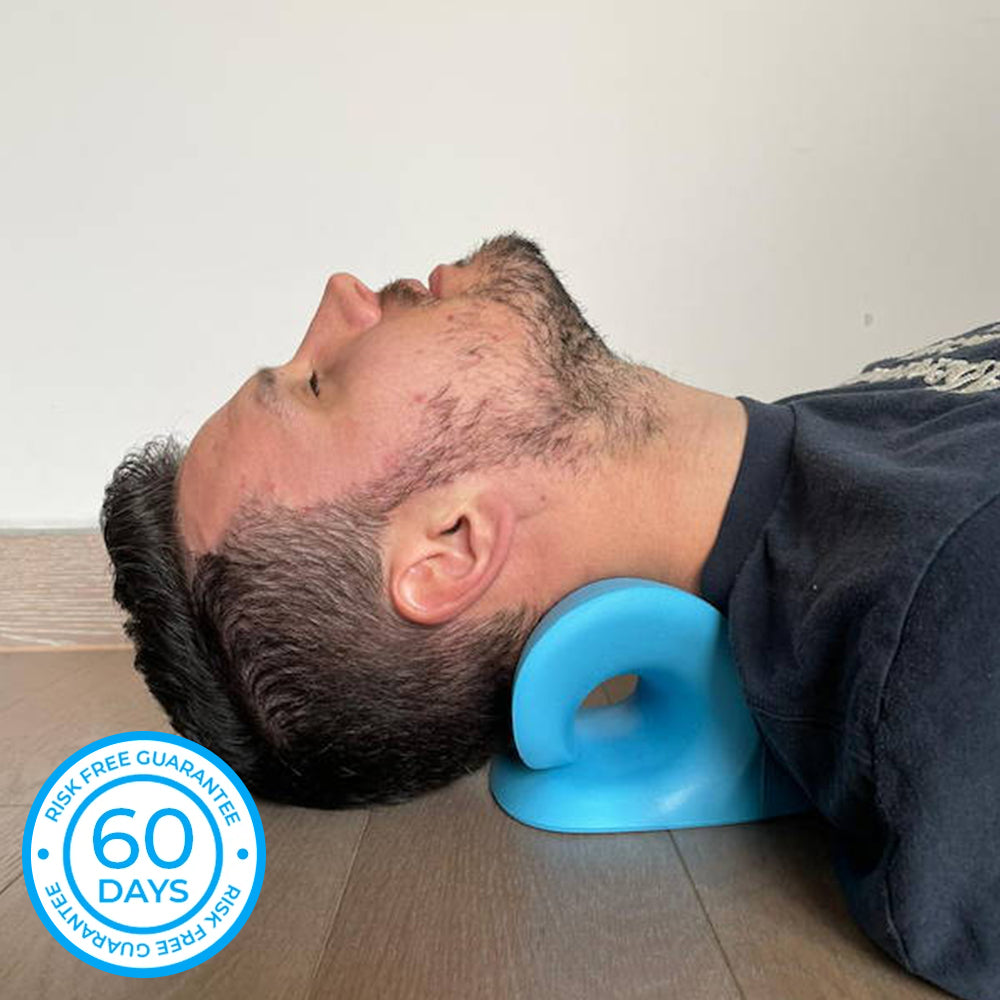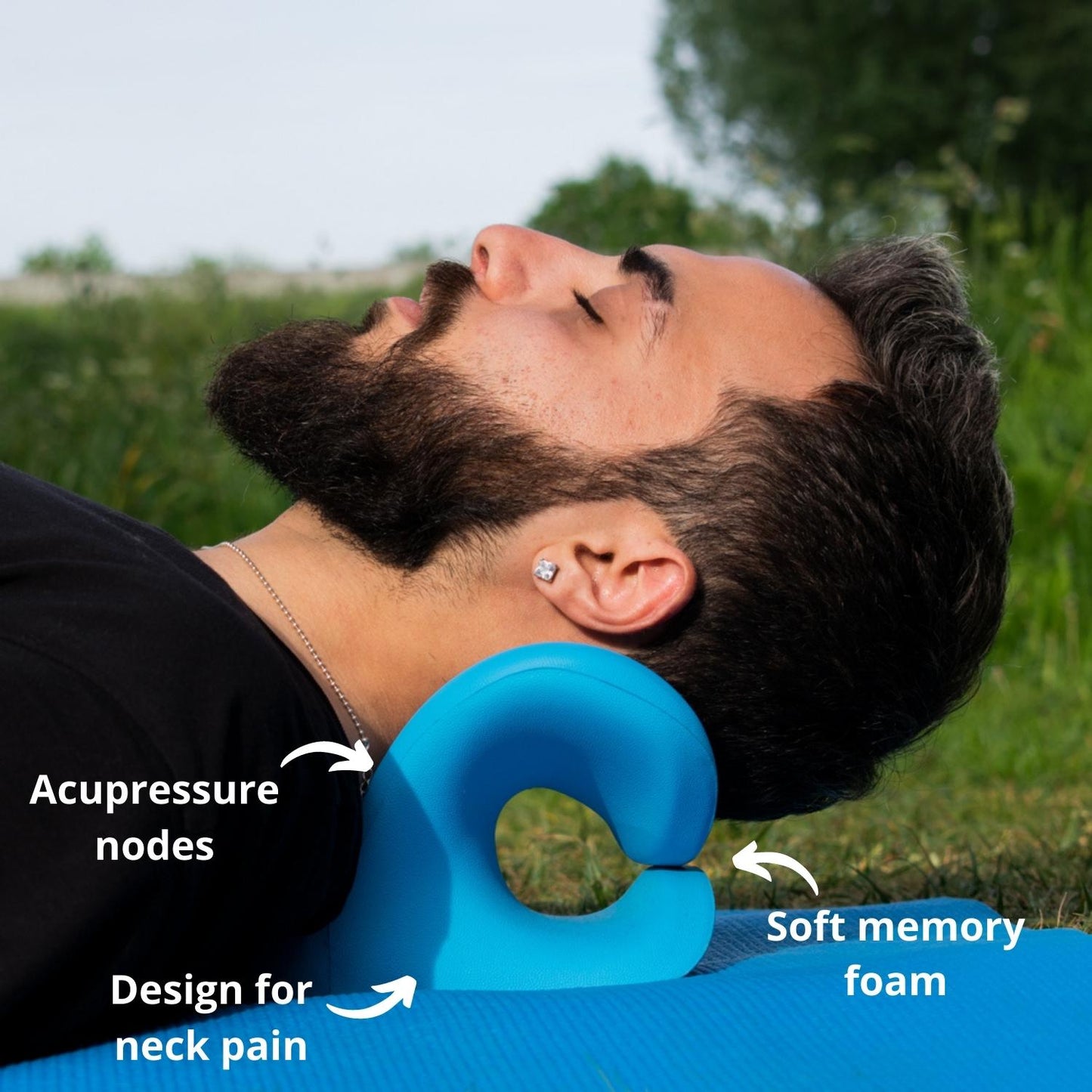The Impact of Tension on Neck Discomfort: Approaches for Reducing Tension and Discomfort
In today's fast-paced world, it's no secret that anxiety has actually ended up being a widespread factor in the start and worsening of neck discomfort. Join us on a journey to decipher the influence of stress and anxiety on neck discomfort and discover efficient methods to relieve discomfort and boost general high quality of life.
Recognizing Stress-Related Neck Pain
Neck discomfort is an usual issue that can often be connected to stress. Stress-related neck pain can show up as tension, stiffness, or pain in the neck and shoulder location. The connection in between stress and anxiety and neck discomfort hinges on the body's physiological feedback to stress, which can lead to muscle stress and tightness in the neck muscles. Persistent tension can result in persistent neck discomfort and intensify current problems like cervical spondylosis or muscle stress.

Identifying Common Stress Locations
Regularly experienced by people under stress, stress locations in the body can give valuable understandings right into the physical indications of psychological strain. One usual stress area is the neck, where stress and anxiety typically shows up physically. Stress headaches, tight neck muscle mass, and limited variety of motion prevail signs of stress-related neck stress. The shoulders are another usual area where tension accumulates. Stress and anxiety can create the muscle mass in the shoulders to tighten up, resulting in discomfort and pain. In addition, the top back is vulnerable to tension build-up, specifically in individuals that experience chronic anxiety. Poor posture and prolonged sitting can aggravate tension in this field. The jaw is additionally an usual area for stress-related tension, as numerous people clinch their jaw or grind their teeth when stressed. Being conscious of these typical stress areas can assist people acknowledge the physical indicators of anxiety and take steps to address them prior to they rise into persistent pain or pain.
Carrying Out Relaxation Techniques
To successfully take care of stress-related stress in the body, executing relaxation strategies is crucial. Leisure strategies are useful devices for reducing neck pain brought on by stress and anxiety. Deep breathing workouts can help calm the mind and relax tense muscular tissues in the neck and shoulders (neck cloud). Practicing mindfulness reflection can additionally be valuable in minimizing stress and advertising relaxation. Progressive muscular tissue leisure, where you click here for info methodically strained and then unwind various muscular tissue groups, can release built-up stress in the neck location. In addition, tasks like yoga and tai chi include both physical activity and leisure, making them reliable practices for decreasing stress and anxiety and neck discomfort. Taking normal breaks throughout the day to stretch and take a break can avoid muscular tissue tightness and stress from building up. By including these leisure methods right into your daily regimen, you can assist handle anxiety degrees, reduce stress in the neck, and alleviate discomfort associated with stress-induced neck discomfort.
Integrating Self-Care Practices
Incorporating self-care methods is vital for keeping overall well-being and handling stress-related neck pain properly. Taking part in normal physical task, such as mild stretching exercises or yoga, can help ease tension in the neck and shoulders. Exercising great stance throughout the day and taking regular breaks from extended sitting or display time Look At This can likewise avoid pressure on the neck muscular tissues.
Furthermore, focusing on appropriate rest and developing a constant rest regimen can contribute significantly to lowering stress degrees and advertising relaxation. Creating a calming going to bed routine, such as reviewing a book or taking a warm bathroom, can aid prepare the mind and body for relaxing sleep. Additionally, keeping a balanced diet regimen rich in nutrients and remaining hydrated can sustain total health and minimize inflammation that might intensify neck discomfort.
Incorporating mindfulness practices, such as deep breathing workouts or reflection, can assist handle anxiety and promote leisure. Taking some time for oneself, involving in pastimes, and establishing borders to secure personal time are likewise vital elements of self-care that can add to reducing stress and easing neck pain.
Looking For Specialist Aid
Exactly how can individuals efficiently deal with relentless neck pain that is affecting their everyday life and well-being? Seeking specialist help can be an essential step in handling and alleviating neck discomfort.
Chiropractics physician specialize in spinal adjustment methods to enhance positioning and lower tension in the neck location. Physiotherapists offer targeted exercises and stretches to enhance muscle mass, enhance versatility, and improve overall neck function. Orthopedic experts can supply advanced clinical interventions such as injections or surgical choices for extreme situations of neck discomfort.
Final Thought

Stress-related neck pain can manifest as tension, rigidity, or pain in the neck and shoulder area. The link between stress and anxiety and neck pain lies in the body's physiological reaction to stress and anxiety, which can result in muscle mass tension and tightness in the neck muscular tissues. Tension frustrations, tight neck muscle mass, and limited array of movement are common signs and symptoms of stress-related neck tension. By including these relaxation strategies into your everyday regimen, you can assist handle tension degrees, reduce tension in the neck, and relieve discomfort linked with stress-induced neck pain.
